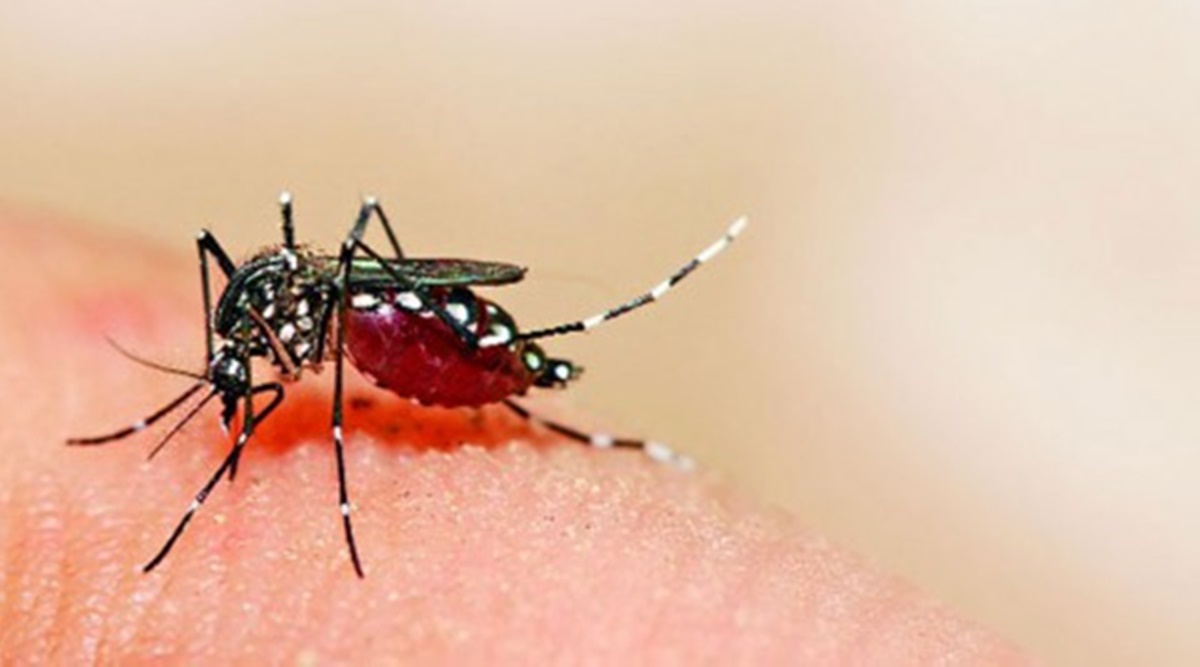 Last year, PMC had recorded 1,407 cases of dengue and 10 deaths, majority of which were reported from July to November.(Representational Image)
Last year, PMC had recorded 1,407 cases of dengue and 10 deaths, majority of which were reported from July to November.(Representational Image)There have been zero cases of both dengue and chikungunya from March till August this year, according to data from Pune Municipal Corporation’s Insect Control department.
Last year, PMC had recorded 1,407 cases of dengue and 10 deaths, majority of which were reported from July to November. There were 741 cases of chikungunya, and most were reported during the monsoon and post-monsoon period. According to PMC data, this year, seven cases of dengue and 18 cases of chikungunya were reported before the lockdown in March.
Across the state, there have been 1,763 cases of dengue and two deaths till August this year, as against 3,635 cases and four deaths last year in the same period.
According to data from the National Vector Borne Disease Control Programme, while 1.5 lakh cases of dengue were reported last year, only 12,078 cases have been reported across the country till July this year.
Some experts, however, have cited the prolonged lockdown, focus on Covid-19 cases and laboratories being inundated with samples for testing as among reasons for fewer dengue fever cases being reported. By and large, requisition for dengue confirmatory tests have gone down and amid the tests conducted, positivity rate for dengue has gone down, they said.
According to Dr Subhash Salunkhe, chairman of the state Technical Committee on Prevention of Communicable Diseases, this year, rains have been short but heavy and hence vector density appears to be low. He also pointed out that this could also be a natural patch, when the infection rate is lower.
“Dengue fever cases are at their lowest this year. In August-September, we should have seen several cases of dengue. Clearly, there are just a few sporadic cases…,” Dr Rajesh Gadia, consulting physician at KEM Hospital, told The Indian Express.
Dr Gadia, who has studied dengue cases and treated them for well over 15 years, said that the highest number of dengue cases are usually seen during September and October. But, he said, Covid-19 seems to have wiped out dengue this year.
However, he said he has been treating four to five cases of rickettsial fever from Baramati and Phaltan. “They have multi-organ failure and have been admitted to the ICU,” he said.
According to state data, this year, Kolhapur Municipal Corporation has reported the highest number of 232 dengue cases while in the rural parts of Kolhapur district, there were 150 cases of dengue fever.
Nashik Municipal Corporation has reported 117 cases of dengue fever while Thane has 75 cases and Greater Mumbai has 62 cases. Across rural parts of Satara district, there have been 86 cases of dengue fever, Solapur district has 58 cases and rural parts of Pune district have 59 cases. Pune Municipal Corporation has reported seven cases of dengue fever while Pimpri Chinchwad Municipal Corporation has reported 12 cases.
Despite the low numbers, state epidemiologist Dr Pradeep Awate told The Indian Express that there was a need to be vigilant and ensure that surveys are carried out and breeding grounds of mosquito-borne viral disease eliminated.
The main method to control or prevent the transmission of dengue virus is to combat the vectors, which can be achieved by prevention of mosquito breeding and ensuring good practices at home, said Dr Awate.
Disposing of solid waste properly, removing artificial man-made habitats that can hold water, covering, emptying and cleaning of domestic water storage containers on a weekly basis and active mosquito and virus surveillance are among the guidelines that are circulated every year to district health officials.
Monsoon season provides favourable breeding grounds for dengue-causing mosquitoes and it is vital to ensure containers holding water are covered and water is not accumulated anywhere for long, said Dr Awate.
📣 The Indian Express is now on Telegram. Click here to join our channel (@indianexpress) and stay updated with the latest headlines
For all the latest Pune News, download Indian Express App.